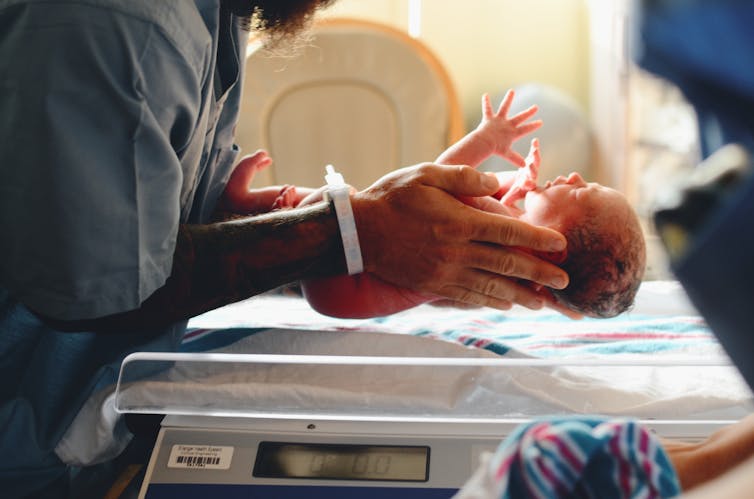Clarifying C-Sections Connecting With Autism
"Our study does not provide irrefutable proof that C-sections cause psychiatric disorders. Association is not causation."
"However, we believe that the study provides information that may help parents [and] doctors to make informed decisions about how they want their births to be."
"C-section is often recommended by obstetricians if the mother has diseases such as diabetes, hypertension, etc. Some of the diseases might already have an effect on a child’s brain development when he or she is still in the womb. [A combination of factors may contribute to the risk, so] it would therefore be wrong to demonize C-sections. C-sections should continue to be used when medically necessary."
"Researchers should continue [to] investigate what are the underlying causes of the observed associations."
Tianyang Zhang, researcher, Karolinska Institute, Sweden, study lead author
"Public health concerns have been raised because access to medically indicated cesarean delivery may be difficult in low-resource settings and unnecessary cesarean deliveries may be performed in high-resource setting."
Research team, study, published in JAMA Network Open
 |
| It’s important to understand why there may be a link between cesareans and some disorders, especially as C-section rates have risen in recent years, say the researchers. (Loic Venance/Getty Images) |
"The impact of this is not going to be great because the increase is still pretty low."
"It’s not very dramatic. It’s statistically significant but from the population standpoint, the risk is not huge. And it absolutely does not prove that cesarean section is causing autism or ADHD."
"The risk factors that lead to a C-section may also be risk factors that lead to autism or ADHD."
Dr. Pankhuree Vandana, pediatric psychiatrist, Nationwide Children’s Hospital, Columbus, Ohio
"This study is certainly interesting and begs further prospective research be undertaken to try and answer the question of whether delivery by caesarean section increases the burden of mental health issues in children."
"Before undergoing any treatment, particularly elective treatment, it is important that doctors make patients aware of the options they have and their potential risks and benefits."
"Ultimately, this study does not answer this question, but merely comes up with the correct recommendation that 'further research is required'."
University of Queensland obstetrics researcher Gino Pecoraro
 |
As far as experts in the field are concerned, it remains unclear why risks associated with C-sections appear to be so elevated, irrespective of whether the C-section was planned or undertaken as a result of a medical emergency. However, there is a possibility that factors such as a mother being older, or a baby at risk of premature birth could conceivably impact with such consequences and may also explain the higher risk of developmental disorders
Scientists also throw in the possibility that post-birth exposure to antibiotics could play a part as well. Professor Jeffrey Keelan, deputy director of the women and infants research foundation, University of Western Australia, found the study "interesting and well-performed", but failed to sufficiently adjust for a host of factors that could explicate the additional risk -- while other scientists felt the findings to be "significantly flawed", in that some of the studies included in the analysis reflected extremely high autism rates.
It is estimated that in the United Kingdom alone, around one percent of the population could be on the autism spectrum, reflecting the fact that Britain hosts some of the highest rates of births by caesarean section in Western Europe, with 26.2 percent delivery by C-section currently, in comparison to 19.7 percent performed in 2000. Experts link the rise in C-sections to the increasing age of mothers-to-be, along with the rise of obesity levels.
"The need for a caesarean is often caused by problems that could influence brain function, such as a poorly functioning placenta. It is highly unlikely the caesarean delivery itself is causal in these mental health conditions, from our current understanding of brain physiology and the effects of a caesarean."
"Women should not be alarmed by the need for a caesarean, which is often performed to reduce risk to their baby."
Dr. Andrew Shennan, professor of obstetrics, King's College London
"A number of underlying factors ... were not accounted for [in the study]. Therefore the findings of this paper do not show that caesarean birth leads to autism and ADHD."
"Women who have a caesarean birth should be reassured that it is a safe procedure. In many cases, a caesarean birth can be a life-saving intervention."
Dr. Pat O'Brien, consultant obstetrician, spokesman, Royal College of Obstetricians and Gynaecologists
 |
| Kids delivered by c-section are a third more likely to develop autism, a study has found Credit: Getty - Contributor |
"We know, for example, that caesarean sections are more common for pregnant women who are obese and older, and who have a history of immune conditions such as asthma."
"All of these factors have also been linked with an increased chance of having a child with autism, and it is entirely possible – and some would argue, probable – that it is more likely these factors underlie the relationship between caesarean section and neurodevelopmental disorders."
Dr. Andrew Whitehouse, Bennett Chair of Autism, University of Western Australia
Labels: Autism, C-Section, Childbirth, Medicine, Research

0 Comments:
Post a Comment
<< Home